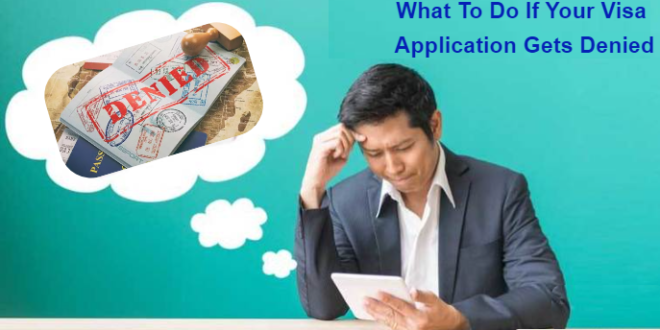Visa Application Gets Denied: Imagine you go in for your visa interview and after all that preparation, the consular officer or the immigration officer overseeing your visa interview and your visa application ultimately denies the case. What do you do?
Well, that’s what this guide will talk about. So make sure you read it very well from beginning to end.
What should you do in the unfortunate event that your visa application ultimately gets denied?
The first thing that you should know is that generally when a visa gets denied, the recourse that you have is basically to reapply.
Ultimately, when you reapply, it’s imperative to know what you need to do to improve your application, and in order to know that, you need to know why the application was originally denied.
Was the application denied because the immigration officer felt that you did not satisfy one of the requirements?
For example, for a visitor visa, you are required to overcome the presumption of immigrant intent. You have to satisfactorily convince the immigration officer that you are not an intending immigrant to the United States and that you truly plan to just visit the United States.
So was your visa application denied because you didn’t successfully do that? Or did the consular officer determine that you’re ineligible or you’re inadmissible to the United States for some reason?
For example, maybe you had a prior issue with overstaying a visa in the past and now you might be subject to some sort of bar from reentering the United States. Is that the case?
It’s very important for you to understand ultimately what the reason was why the visa application got denied? Because as I mentioned, your recourse is essentially to reapply.
When you’re reapplying you need to know what you need to fix with the application, is it just presenting some documentation more strongly or is it something entirely different?
For example, in the example mentioned above where there was an issue with a prior overstay, do you need to apply for some sort of a waiver to overcome that grounds for inadmissibility? All of this comes down to what the basis was for the denial.
Oftentimes when an immigration officer will deny a case, they may provide you with some sort of documentation that specifies the grounds for the denial, but sometimes they won’t, and that’s where it’s beneficial for you, depending on the circumstances, to ask the immigration officer to elaborate on the basis for the denial, so that ultimately you have a better understanding and you can communicate that with your immigration lawyer to develop a game plan for reapplying.
Also, to better understand whether it makes sense to reapply for this particular visa or if there’s potentially another visa that might be more suitable for you.
So there you have it.
If the visa gets denied:
- make sure to understand why the visa got denied;
- strategize with your immigration lawyer to determine whether it makes sense to reapply for this visa, whether you’re going to be required to apply for a waiver of some kind, whether it makes sense to apply for another visa or a different sort of immigration benefit and ultimately go from there.
Hope you found this information helpful.
 Jobsscholar Jobs Search | Education Hub | Scholars Portal
Jobsscholar Jobs Search | Education Hub | Scholars Portal
